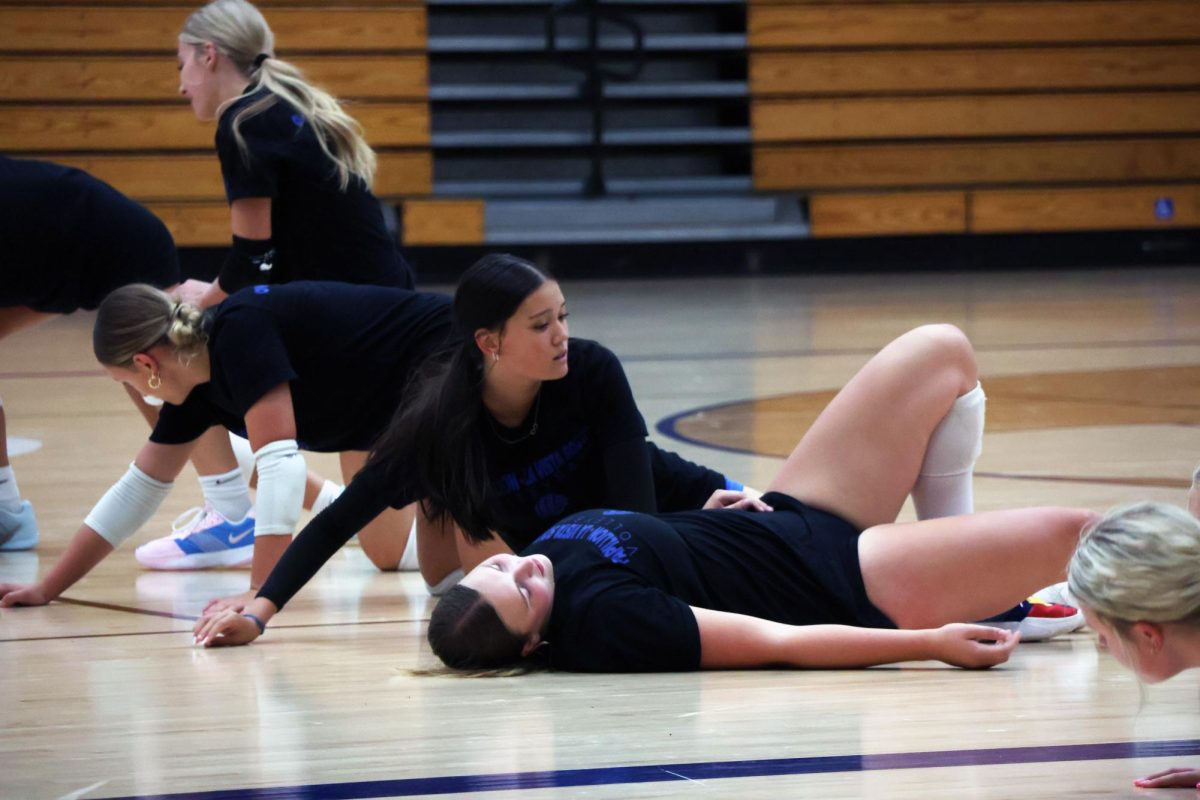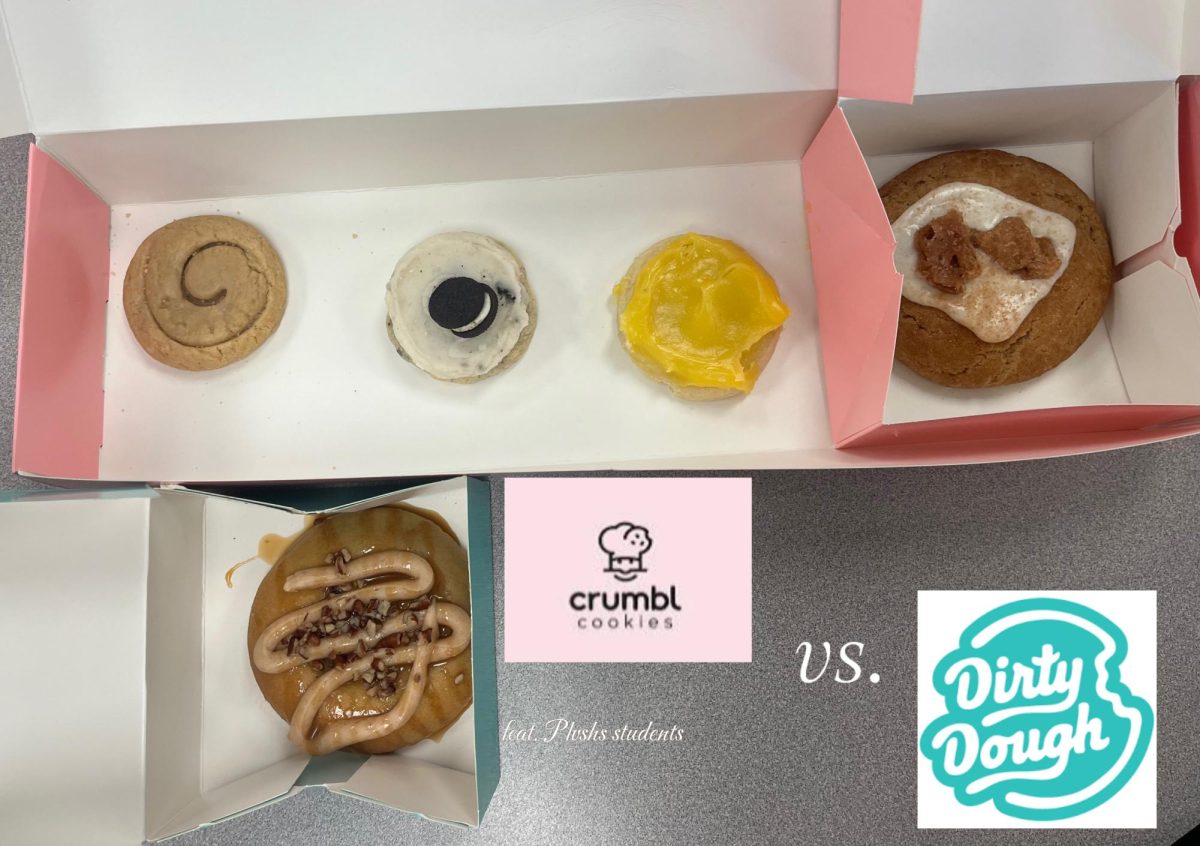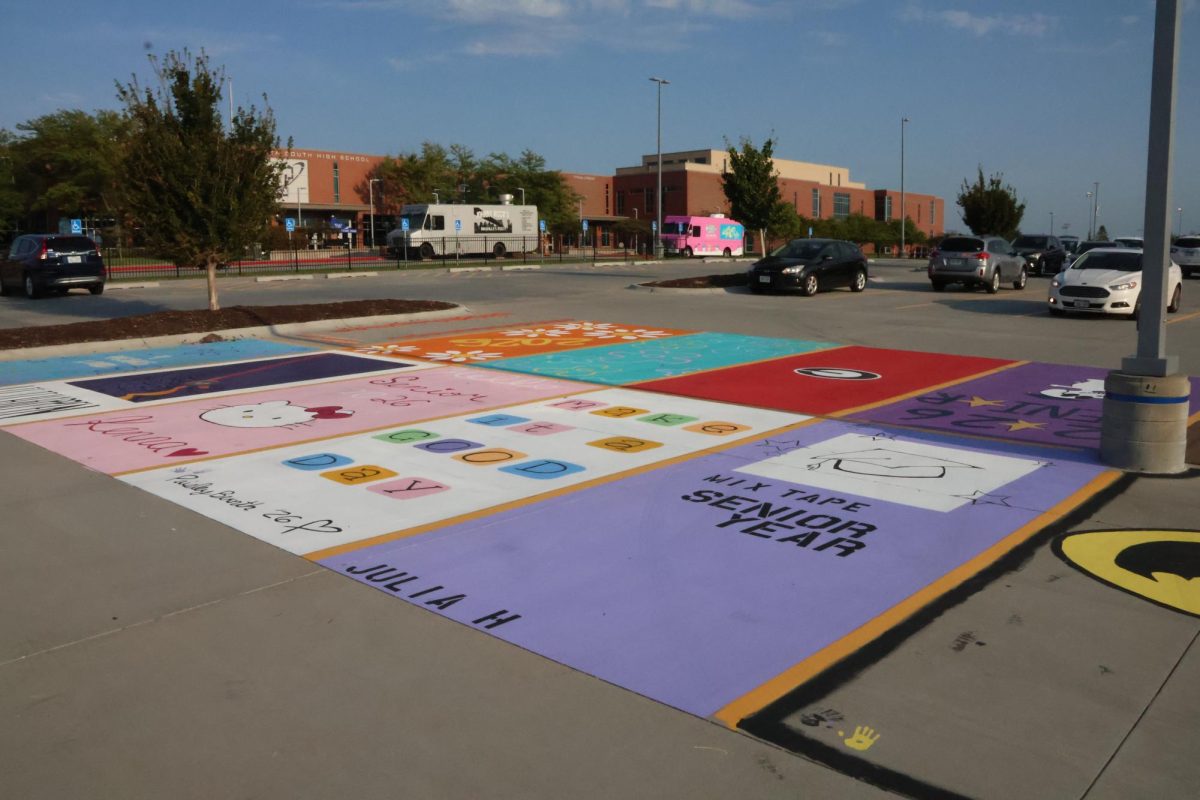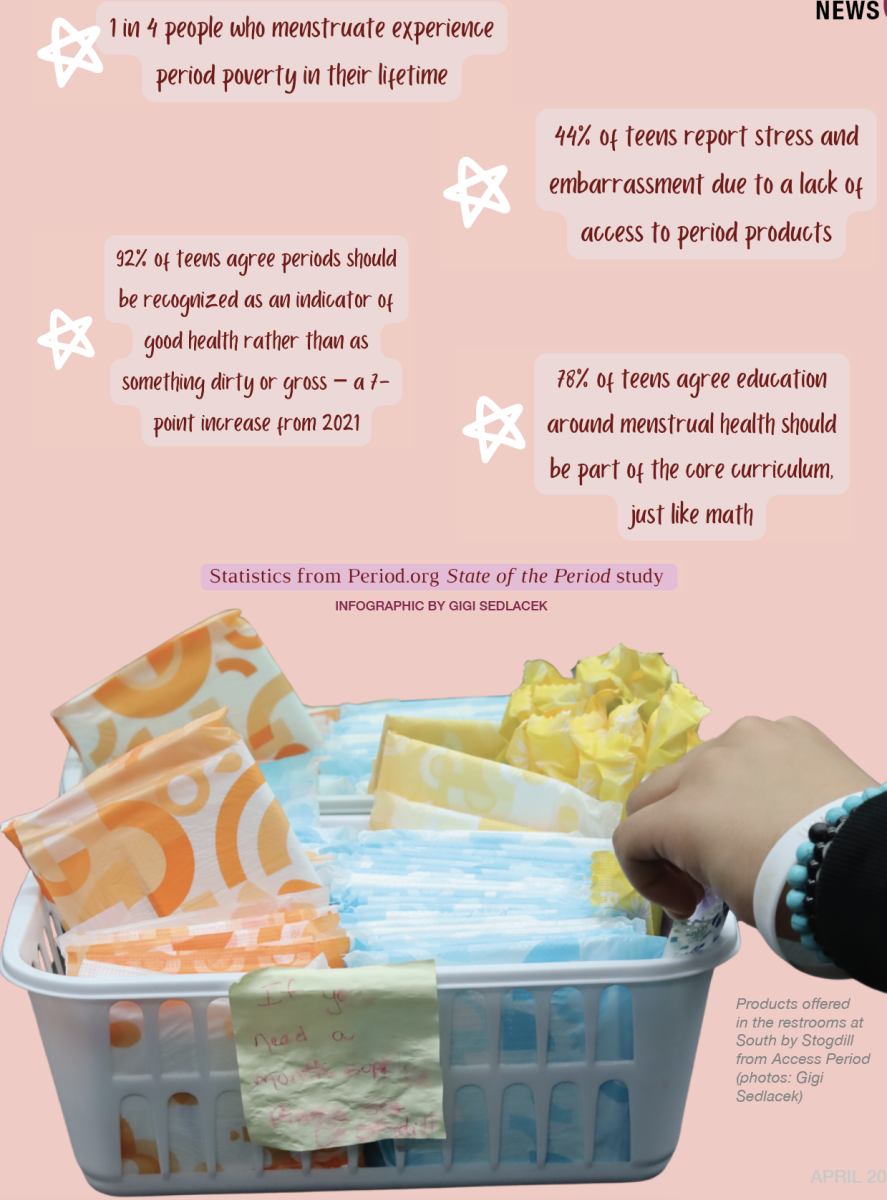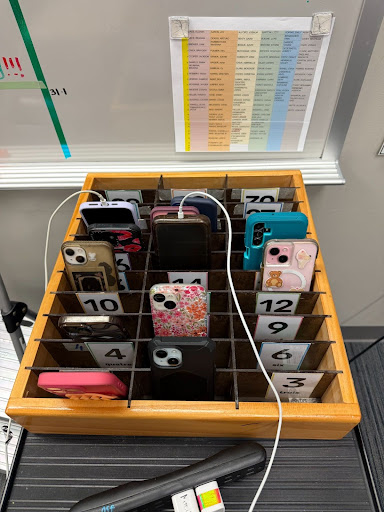The only place outside of the nurse’s office that emergency feminine hygiene products can dependably be found at Papio South is inside the restroom closest to the library in Hallway D. Dr. Cynthia Stogdill, the school’s librarian, and a few other teachers began stocking a basket full of varying products in the restroom due to the number of students who came to them needing products.
“You can’t focus on learning when some of your basic needs aren’t met. So if you’re hungry or you don’t have things that you need … you can’t focus on learning,” Stogdill said. “I didn’t really realize this was an area that impacted so many students, and when you think about it, it really … makes sense that it’s a need.”
Stogdill and the other teachers originally were purchasing these products with their own money until Stogdill learned about Access Period, a nonprofit that provides menstrual products to places such as schools and homeless shelters.
“When I got connected with Access Period, I was just excited and grateful that there was an organization that really was taking this seriously and advocating for this issue for young people in the metro,” Stogdill said. “They were wonderful…they brought us a couple of month supply packs that, if kids needed, we could give them that. They’ve really gone out and pursued funding and donations. … I just tell them when I need stuff, and they ship it to us.”
According to Period.org one in four people who menstruate experience period poverty in thier lifetime. If you relate that to the student body at South, with nearly 1,000 girls, that would mean that 250 of our own student lack access to the products they need.
Stogdill initially tried to hide that she was the one providing the products until she was eventually caught by two students.
“I tried to be really secret about it for a long time,” Stogdill said. “I would sneak in and fill the basket and hope nobody saw me…I got caught by two students, and I was like, ‘Oh, hi. Tampon Fairy – don’t mind me,’ and they were like: Hey, you need to know that people really appreciate this; some kids don’t have it at home, but sometimes you just have an emergency and you don’t wanna dig in your bag in the classroom or whatever, and so it’s just nice to know it’s there.”
The Nebraska Legislature introduced a new bill on Jan. 8 regarding access to feminine hygiene products inside schools. LB1050 would require the Nebraska Department of Education to provide feminine hygiene products inside all women’s restrooms in high schools that have high levels of poverty or are deemed lowest performing.
This idea for this bill was started by Lincoln East High School senior Cassidy Bell. Bell first introduced the project to the LPS Lincoln Board of Education, and it was a success. She then reached out to state Sen. Danielle Conrad, who supported her idea and introduced the bill to the Nebraska Legislature.
Inside most high schools, an emergency menstrual product can be acquired from the health office or nurse’s office. This requires the student to leave their learning environment, walk to the health office, go to the bathroom while most likely hiding their product, and then go back to class. This entire process takes longer than it should, and by having products in the restrooms not only can students return to learning quicker but they also avoid the embarrassment that society associates with a woman’s period.
“In the status quo, there is an air of shame and embarrassment around menstruation,” Bell said, “and I’ve seen that this barrier can be easily broken by having menstrual products visible, which sends the message that others are dealing with the same issue.”
Several other schools in the state have begun putting menstrual products inside their women’s restrooms to provide accessible care as well as help girls who suffer from period poverty. The largest districts to begin this policy are Lincoln, Seward, and Grand Island public schools.
If LB1050 is passed, girls experiencing period poverty or period insecurity will be able to focus on learning during the day as opposed to wondering if they will be able to take care of their situation and how they will do so. This bill will also decrease the current stigma surrounding periods and allow for women to feel able to ask for what they need to take care of themselves and their health.
Not having access to menstrual care not only creates shame and embarrassment, but it also results in high absentee rates. A study done by the journal of school nursing reported that 33.6% of participants had missed school because of their period. This can be due to several different factors including intensity of pain and lack of products. If women don’t have the supplies they need to take care of their reproductive health, then their self esteem, dignity, and well being can all be affected.
“The implication I’m ultimately trying to send is that menstrual hygiene products are necessary, not optional,” Bell said.
By writing to the state senator, Bell was able to take her project farther than just her own high school. This is something all students can do, Bell said, and ongoing emails the Nebraska Legislature could help expand the project to all schools across the state.
“Don’t be afraid to look up your senator and send them a quick email or phone call,” Bell said. “In addition to this, work to break the menstrual stigma around you. Speak openly and confidently about your menses, pursue similar pilot programs at your school, and support girls who need help on their period.”


![Pictured above is a structure that displays the names of Nebraska Vietnam veterans in order to “honor [their] courage, sacrifice and devotion to duty and country.”](https://plsouthsidescroll.com/wp-content/uploads/2025/10/Trey_092625_0014-e1760030641144-1200x490.jpg)



